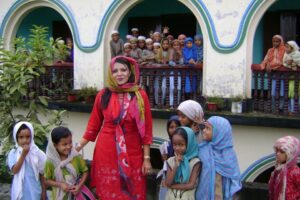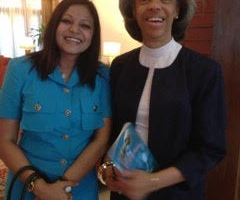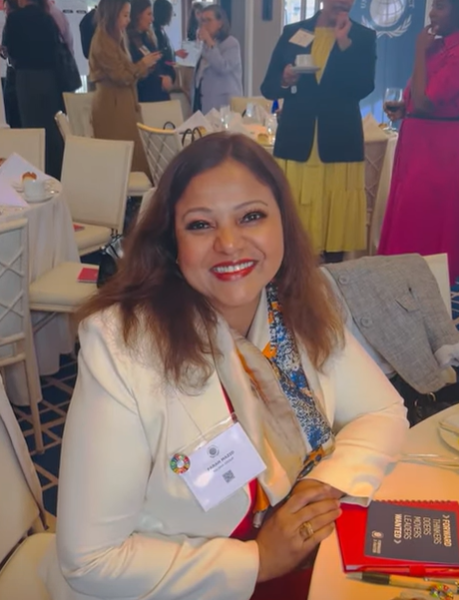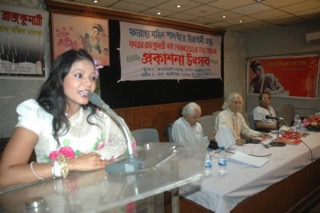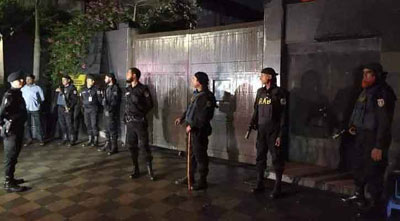If there is one thing you should understand about the Ukrainian refugee crisis in Poland, it is this: Approximately 90 percent of the displaced are women and children.
Because of military conscription, Ukraine does not allow most men between the ages of 18 and 60 to leave the country. So the more than 2 million people who have crossed the border to escape the Russian invasion are women, children and a few elderly men.
That has meant devastating separations for the families involved. But it also means that this regional crisis of forced migration is first and foremost a crisis for women — and, particularly, for mothers. And as hundreds of thousands of displaced families search for ways to support themselves, Poland is confronting long-standing limitations in its support for working mothers, which are now becoming a matter of geopolitical urgency.
A World of Women
To understand how the crisis is playing out, I went to Zabki, a small suburb outside Warsaw, which exemplifies both the promise and challenges of the response to the refugees’ arrival.
Low property prices and convenient access to Warsaw have made Zabki a popular destination for young families, giving the town one of the highest birthrates in Poland.
In recent weeks, however, the town’s growth has accelerated beyond what anyone was anticipating. The first refugees arrived within days of the Russian invasion, said Malgorzata Zysk, the local mayor. Officially, more than 1,500 Ukrainian refugees are now living in the town, with about 100 more registering each day. But Zysk estimated that the real numbers were about twice as high.
In a small apartment lent to her by Zabki’s city government, one of those refugees, Lyubomira Pancuk, showed me photographs of her family gathered for Orthodox Christmas in January, in their home in Ivano-Frankivsk, Ukraine. Bloomingly pregnant, she was next to her husband and three daughters, all smiling for the camera. “We were all together, happy, waiting for the baby,” she said.
Less than two months later, the war forced her to flee to Poland with her children, now including a 3-week-old infant, born prematurely and suffering from jaundice. Her husband is still in Ukraine.
Her eyes flooded with tears when she described the generosity of Zabki’s government and residents upon their arrival.
But the family lives precariously, reliant on a small allowance from the Polish government and the generosity of their Polish neighbours. It is impossible for her to work right now because she must care for her baby.
It is a story that I heard over and over from Ukrainian women in Poland. They told me that their priorities were simple: a safe place to live with their children, far from bombs and battles.
But security and stability often cost more than the small allowance that the Polish government offers to Ukrainian families. Thousands of Polish citizens across the country have lent rooms or apartments to refugees, but many are already asking when their guests will leave. Soon they will need to pay rent. And to afford it, as rents around the country skyrocket in response to the sudden demand, they will need to work.
That means Ukrainian mothers must solve a higher-stakes version of the problem working mothers face all over the world: how to find affordable and reliable child care, and employers willing to accommodate their needs as parents.
A Challenging Environment
Family-friendly policies, such as flexible working hours, are relatively rare in Polish workplaces — the legacy of years of high unemployment, said Ida Magda, a labour economist at the SGH Warsaw School of Economics who studies Polish women’s participation in the labor market.
Care for children younger than 3 is often so expensive that many women find it cheaper to stay home until their children are old enough for preschool. And although the government has recently expanded state-funded preschools for 3- to 6-year-olds, known in Poland as kindergartens, spaces were in short supply in many parts of the country even before the war began.
Now, the Polish government is scrambling to figure out how that system can accommodate the needs of Ukrainian mothers who have lost everything in the war and cannot rely on male partners for support.
Older children can attend Polish schools. And a recent directive from the ministry of education instructed preschools to add three extra spots per class to accommodate Ukrainian children.
But mothers with toddlers or babies have fewer options. In Zabki, for instance, there are no state-run day care centers for children younger than 3. Some private centers are offering temporary discounts or free places to Ukrainian children, but such assistance is scarce and will not necessarily be a reliable long-term solution even for those who obtain it.
For mothers like Pancuk, that leaves few options. Perhaps when the baby was a little older, she said, it might be possible for her oldest daughters to watch him for a few hours a day so that she could work part time.
“I don’t know what my plans will be,” she said. “I am just living day to day.”
A System Under Strain
Grazyna Swiezak, the director of the Zielony Dinek preschool, in the middle of Zabki, said that she and her staff were happy for the opportunity to help Ukrainian children.
The school anticipates that some refugee children will need emotional support, and Swiezak said she hoped to hire Ukrainian- or Russian-speaking psychotherapists to help them. But on my recent visit there, the scene seemed idyllic. In a row of sunlit classrooms, Ukrainian children played with new friends.
Goodwill cannot necessarily overcome institutional limitations, however. The previous caps on preschool class sizes, for instance, were intended to ensure that children had adequate supervision. Expanding them further could jeopardize children’s education, and perhaps even their safety.
The spots created for Ukrainian children are already filling up. More than half of the new spaces at Zielony Dinek are already taken, Swiezak said. New families arrive in town every day.
And if the government expands support for Ukrainian mothers without making similar efforts to meet Polish women’s needs, there is a risk of political backlash.
Taped to the school’s front doors were pages and pages of waiting lists: Polish families who had applied unsuccessfully for places at the school. Many will get spots for their children in other schools, less desirable or convenient than Zielony Dinek, but still something. But others may be left scrambling for solutions.
Parents across the country are in similar positions. “Many of those people who did not have their child accepted to the kindergarten will probably now be raising the question: How come the other children are getting the new places?” Magda said.
Over time, she worries, that could lead to resentment.
“Some people will have understanding for the fact that these people have suffered so much and want to help them get safe footing in the Polish territory,” she said. “But others will not care as much.”
“The last thing we need is a conflict here. This is what Putin wants the most,” Magda said, referring to President Vladimir Putin of Russia. “So we have to do everything to really try to avoid that.”





